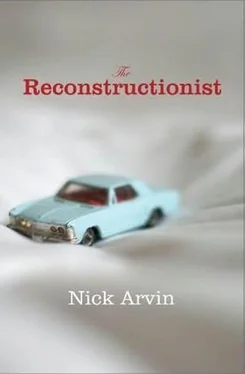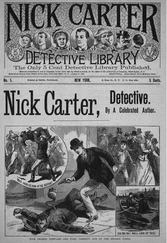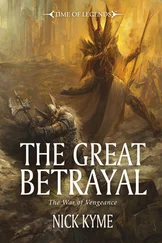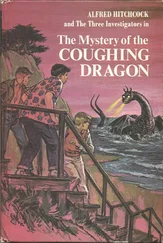Bright low clouds scudded from the west and away beyond the eastern hillbacks. There was no traffic, none at all, and he wondered at the terrible chance that three vehicles had met here. He heard the wind sifting through the grasses beside the road, but he could not feel it. The wind in the grass made a simmering, gorgeous sound. He thought, I am learning something important. But if so he could not describe it to himself with any clarity, and then he thought, Perhaps I am not really learning anything at all. Perhaps I am only following deeper and deeper into a vacant delusion.
A vehicle approached – he felt it in the road before he heard it, a low vibration that gathered to itself the whisper of tyres turning.
He rolled out of the road just as the car, a Chrysler Sebring, barked its tyres, swerving and pushing a wind that flapped his pant legs. The Sebring didn’t stop. Ellis lay in the gravel and here, pressed into the dirt beside him, was the shape of Boggs’s tyre mark.
He walked over the site again, starting at the tyre mark and moving in widening circles, and eventually discovered a small piece of white paper hung in the weeds. A receipt for gasoline with a name at the bottom: John Boggs .
A ball of snakes writhed in his stomach. Now, after all, here was a new point of data. The gas station address named a town that he found on the map. The date was yesterday. The town lay in the east, and east was the direction he would have gone next, but apparently Boggs had been there, so he turned west.
He made two brief stops – one at the scene of a collision between a street sweeper and a scooter, the other at the place where a garbage truck had crashed into a pickup with two kids in the bed playing with a set of magnetic chequers – before he came to a curve of roadway under a high hill. He and Boggs had spent most of a day working here, surveying, photographing. Not far away, perhaps a half-hour by foot, stood a mate to the hill, a little taller, with three windmills rising off it. Eight months after working below the first hill, they had been brought out to work on a second accident that occurred at the foot of the second hill, with the windmills.
The air here blew hot and dry, despite a lake that lay not far away. From the road he could not see the water; he remembered it from looking at aerial photos of the site. He had a bottle of soda that he sipped from but could not rid his mouth of a parched sensation. His chest ached vaguely. Tremors moved through his hands and arms, into his jaw and eyelids. His eyes, too, felt dry. Near the road the soil was sandy with tufts of grass, and he scuffed around with his foot until he found a swathe of broken glass. He picked up a piece the size of a housefly and felt its edges, watched it catch the sunlight. By examining the thickness and laminated qualities of a piece of glass it was possible to determine whether it had come from a windshield or a rear window or a side window. This appeared to be windshield glass, and he likely stood where the front of the van had come to rest. How many years ago now? Four? Six? The van, a rental, had burned, killing five of fourteen inside. They were grandparents, aunts, uncles, cousins, children, out on a weekend holiday. With so many dead and burned, some of them children, large amounts of money had been at stake. He and Boggs had worked a long time on this case and came to know it in great detail. They had never uncovered anything unexpected – after the first day’s work, they probably could have predicted their ultimate findings to within a couple of mph. But they had produced reports and diagrams and animations, and Boggs had prepped for weeks to provide several hours of deposition testimony.
Traffic now moved on the two-lane road at about sixty, rattling the brush around Ellis. A double yellow line indicated a no-passing zone on the curve around the hill, but a small silver Plymouth had nonetheless been passing, and so came head-on toward the rented van. Both drivers swerved, so that the front left corner of the Plymouth struck the front left corner of the van and the left side of the van pushed upward, as if it had hit a ramp. It fell onto its right side and slid into the sand and grass. The deformation of a frame cross-member under the van punctured the fuel tank, and the gasoline ran down, pooled under the van and began to burn.
Ellis sat sifting sand and shards of glass. He picked out the shards and examined them one by one and set them aside in a little pile. He kept thinking that he needed to call someone, then losing track of the thought.
On the hill across the road a sign advertised Texaco gasoline, which contained useful additives.
He looked at the sand he held with thoughts of examining the grains individually. Boggs claimed that there was so much information in photographs that if you studied a job’s book of photos long enough, you would always eventually see something new and useful. In Ellis’s experience that was sometimes true and sometimes not, but there was always the possibility that in those cases where he had failed to find anything new it was because he had failed to study long enough. He turned the sand a little one way and then another to see how the sun played on it. Certain grains were black, others red or orange or white, their size inconsistent, with some nearly pebbles.
He walked down the road to a fading two-track trail that disappeared into a wire fence. At the time of the accident, there had been a gate. Two men had been sitting in a truck in front of the gate, talking about a possible cellphone tower, to be placed on the hill – Ellis saw now that it had never been built. One of the men in the truck, an ex-marine, had run to the burning van, found a window broken out of the rear doors, and reached in. Fighting through the smoke and flames thickening in the van, unable to see, grabbing hands or legs or shirts or belts, he dragged out seven people. He was a hero, but in his deposition he was taciturn and grim and spoke at length only of the screams of those he had had to abandon.
Two more occupants kicked through the windshield and crawled out on their own. The rest died.
A wind hummed in the fence, and Ellis put his hands on it to feel for the vibrations, but his hands only shook the wire. He walked back to where the van had come to rest and scoured again for caught pieces of paper or fabric, a thread, a hair. He worked his way through the weeds until he came again to the fence. From here he could see a few bright glimmers of the lake surface.
He climbed the fence and pushed through brush. The water lay further away than it appeared, and the brush caught him as if to drag him back. His legs began to shake. He had to stand waiting until it passed.
Nearer the water, he bulled through tall sharp-edged grasses and came at last to an open place along the shore. He crouched. The water was clear, faintly rippling, shallow. He cupped a handful and smeared it onto his face. The opposite shore was also enclosed in reeds and grasses, and the narrow lake stretched away to uninhabited distances right and left. A few ducks loitered on the water.
A short squeal of tyres startled him, but no noise of impact followed. He stood to look at the road, and as he did he glimpsed a human shape to his right, near the water. He stepped through some weeds, wetting his shoes in mud. Someone face down at the water’s edge – someone drinking from the lake or washing in it, as he had just done. But the figure did not move.
‘Boggs?’ Ellis called.
He stood watching, waiting for Boggs to raise himself, and the trembling took him so absolutely that he could hardly move for fear of toppling. After a minute he shuffled forward a few steps, and then he saw that it was not Boggs – too short, too thin, wearing clothes that Boggs would never wear. He stepped from one thatch of grass to another, until he stood over the body of a small, thin man, perfectly dead. Waves came across the lake to jostle it.
Читать дальше












